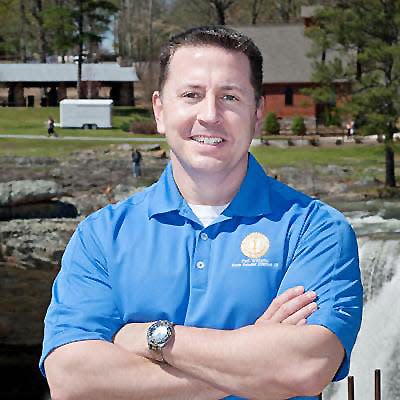Phil Williams Commentary: First-world problems beat third-world solutions
We have it good here in the United States. We are a nation that literally has everything — all of our needs and way too many of our wants.
Spend a little time abroad and you will quickly find that the rest of the world knows what we have and what they don’t have.

As an example, Americans have made an entire industry out of toilets and toilet accessories. We have big ones, tall ones and loos of many colors. We have toilets that sing, toilets that wash and toilets that clean themselves.
The TP industry is big business in the US. Are we spoiled? Toilet paper manufacturing in the US alone is a $16 billion per year revenue generator. That’s a whole lot of squeezably soft squares.
Research dollars have been committed to making toilet paper softer, stronger and less likely to leave residue. More squares per roll, more rolls per pack, more packs on shelves.
Market studies (yes, there are people who make a living studying toilet paper markets) indicate that the average American consumes up to 85 rolls of toilet paper per year, but I feel certain that’s indicative of locations with people who have high-fiber diets.
Toilet paper is big doin’s in America. So again, are we spoiled? But wait, it gets better.
The makers of America’s rolled comfort have hit a new milestone. Just when you thought there was no other way that the makers of American lavatories’ pillow-soft-rags-on-rolls could bring nothing else to bear on our bareness, the latest and greatest innovation has arrived.
Charmin recently announced it had cracked the code as to what people really need in toilet paper. Press releases heralded the news of the latest and greatest effort to ensure that Americans never have to worry about their TP being substandard. It is the dawn of “Ultra Soft Smooth Tear Toilet Paper.”
Now I get the soft thing. Foreign travels have proven to me the worth of good old American toilet paper. I swear I don’t know how people in some countries can walk upright given the wax paper that they stock in their boudoirs.
But “ultra soft?” Are there really levels of soft? Can one move from soft to ultra-soft?
But the claim of “smooth tear” is what really got me. Apparently, it was hard to tear off squares from the average roll of TP before. (Which I find to be quite the indictment on American society)
Allegedly, consumers had been asking for Charmin to come up with some way to tear a square without a little tail left hanging from the roll. Proctor & Gamble, the maker of Charmin, is very proud, and rightfully so.
Rob Reinerman, the company’s vice president, said “This is something the toilet paper category hasn’t seen, and we’ve spent more than five years perfecting the technology and design behind it.”
Five years! Five years spent deciding how best to come up with a square that tears off neatly.
Press reports made known that “It’s the first time in a century that the brand has changed the shape of its tissue. Charmin had been secretly letting customers test the new rolls.” (How did they get that gig, I wonder].)
The report states, “The company says the top customer complaint over the years has been the uneven tears from the square shape.” Really? Actual complaints?
Just for fun I announced this stunning advancement on a recent broadcast of Rightside Radio, only to have one of my listeners call in to confirm that he was a paid participant in the Charmin focus group. Hailing from Decatur, he was paid $125 and given a two-week supply of the new wonder paper.
He said that he had two goals in life: to have store-bought teeth and artificial hair. But dang if he didn’t also get paid to go potty and let people know about it.
I must admit that on the one hand, I admire the fact that the private sector built a better mousetrap with no government subsidies. That is exactly what the free market is designed to do. Poo paper just got better, and I hope that Americans are better off for it.
But I also know that this first-world solution to what can only be described as a first world problem is another clear indicator of the magic of where we live.
We should never take for granted living in a country where the flip of a switch lights a room, potholes in paved roads are not normal and where, despite our urban growth, we still have countless acres of natural beauty.
In America, the average citizen has a car, live-streaming TV, a smartphone and access to retail shopping that would blow the minds of much of the world.
We have rights to assemble, to vote, to worship, to speak. We have the right to due process, to own land and schools where kids don’t sit on the floor. When we turn on the tap in our kitchen, we can expect clean water.
We are indeed a city on a hill and a beacon of hope. The rest of the world wants our first-world problems because first-world problems beat third-world solutions hands down.
Are we spoiled? I would say yes, but I would also add that we are truly blessed. We live in a nation where the average citizen can have toilet paper that is labeled as “ultra soft smooth tear” — and that, my friends, is a nation worth defending.
Phil Williams is a former state senator from District 10 (which includes Etowah County), retired Army colonel and combat veteran, and a practicing attorney. He previously served with the leadership of the Alabama Policy Institute in Birmingham. He currently hosts the conservative news/talk show Rightside Radio on multiple channels throughout north Alabama. The opinions expressed are his own.
This article originally appeared on The Gadsden Times: Phil Williams on first-world problems
